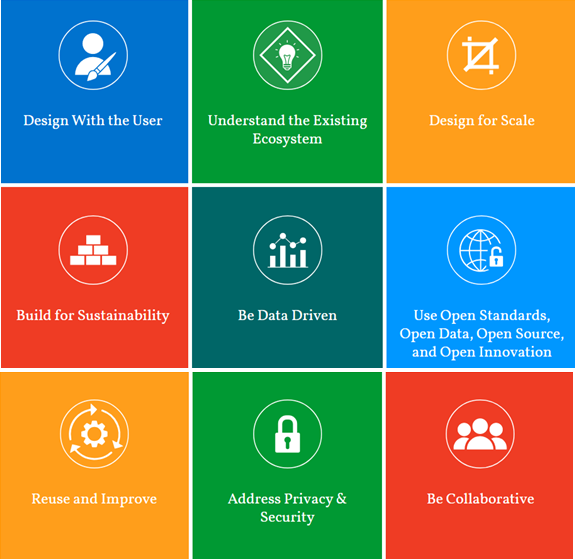ICT Help follows The 9 Principles for Digital Development as a standard guidance when developing digital solutions for our partners.
The Principles for Digital Development are nine living guidelines that are designed to help integrate best practices into technology-enabled programs and are intended to be updated and refined over time. They include guidance for every phase of the project life cycle, and they are part of an ongoing effort among development practitioners to share knowledge and support continuous learning. The Digital Principles were created in a community-driven effort, the result of many lessons learned through the use of information and communication technologies (ICTs) in development projects. All are encouraged to use them.
From Principle to Practice: Implementing the Principles for Digital Development is the culmination of rich and detailed discussions about these Principles by more than 500 individuals representing over 100 organizations working in international development. The report captures their experiences, insights, and questions and presents a set of recommendations about how we can chart a path forward in digital development.

In the late 2000s, donors and implementing organizations began to recognize that digital development programs were fragmented, uncoordinated, siloed, and struggled to scale or sustain themselves in the long term. To address these challenges, donors and implementers began discussing how to understand and share best practices in the use of ICT tools in international development. These conversations led to the UNICEF Innovation Principles of 2009, the Greentree Principles of 2010, and the UK Design Principles, amongst others.
The Principles for Digital Development are an attempt to unify those previous principles and create a community of practice for those who work in digital development. The Digital Principles were first created in consultation with organizations such as The Bill and Melinda Gates Foundation, the Swedish International Development Agency (SIDA), the UN’s Children’s Fund (UNICEF), UN Development Program (UNDP), the World Bank, and the U.S. Agency for International Development (USAID), and the World Health Organization (WHO).
The 9 Principles for Digital Development are:
User-centered design starts with getting to know the people you are designing for through conversation, observation and co-creation.
Well-designed initiatives and digital tools consider the particular structures and needs that exist in each country, region and community.
Achieving scale requires adoption beyond an initiatives pilot population and often necessitates securing funding or partners that take the initiative to new communities or regions.
Building sustainable programs, platforms and digital tools is essential to maintain user and stakeholder support, as well as to maximize long-term impact.
When an initiative is data driven, quality information is available to the right people when they need it, and they are using those data to take action.
An open approach to digital development can help to increase collaboration in the digital development community and avoid duplicating work that has already been done.
Reusing and improving is about taking the work of the global development community further than any organization or program can do alone.
Addressing privacy and security in digital development involves careful consideration of which data are collected and how data are acquired, used, stored and shared.
Being collaborative means sharing information, insights, strategies and resources across projects, organizations and sectors, leading to increased efficiency and impact.

